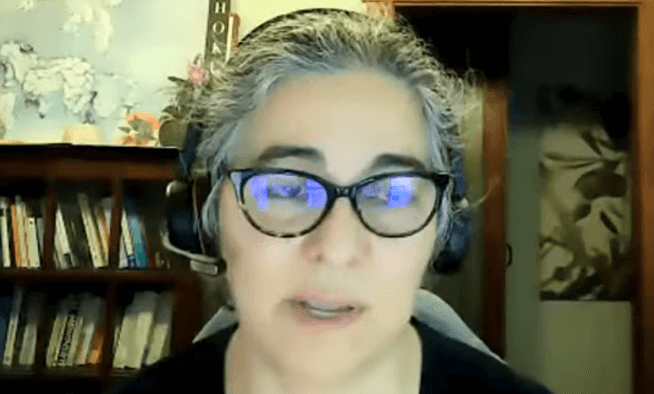
Dec. 03, 2021
TORONTO — A group of Jewish professors at the University of Toronto has launched a human rights complaint against the President of the University of Toronto Faculty Association (UTFA).
The complaint before the Human Rights Tribunal of Ontario (HRTO) emerges out of an online panel event last June 15 regarding the Valentina Azarova affair at U of T. UTFA President Terezia Zoric used her concluding remarks to warn that an “entitled Zionist minority” was engaged in “unending harassment and psychological warfare” against critics of the recent Cromwell Report, commissioned by the University to investigate the Azarova controversy.
The HRTO complaint, submitted by lawyer Jillian Siskind on behalf of nine active or retired U of T professors, alleges that Zoric’s remarks constituted antisemitic stereotyping, and breached their rights under Sections 1, 6 and 13 of the Ontario Human Rights Code.
The complaint also alleges that, after some Jewish faculty members resigned from UTFA in protest of her comments, Zoric moved to increase the fees required to regain one’s membership in UTFA, in an apparent attempt to further punish those Jewish faculty members.
None of the allegations in the HRTO complaint have yet been tested before the Tribunal.
In October, after months of refusing to issue an apology following the incident, Zoric apologized for “using a phrase that evoked a negative trope,” but not for the substance of her remarks at the June 15 panel event.
Senior Counsel David Matas, in a written version of remarks presented to the Matas Law Society of B’nai Brith Canada, stated that what Zoric “did not acknowledge was that this very trope was at the heart of the uproar over the rejection by the Law Faculty of the recommendation by the search committee of Azarova as director of its international human rights law program and the consequent censure of the University of Toronto by CAUT. Nor does she suggest any course of action to unravel the harm that the use of this trope has caused or to prevent the reoccurrence of similar harm.”
The allegations against Zoric are just one of a series of antisemitic controversies that have rocked U of T over the past year. Last week, for instance, antisemitism surfaced at the U of T’s Scarborough campus at the annual general meeting of the students’ union.
In February, a student panel found that the University of Toronto Graduate Students’ Union had engaged in prohibited discrimination by forcing students to fund boycott, divestment, sanctions (BDS) activities, although University administrators have not yet taken any action to enforce the ruling.
In October, a professor at the U of T Faculty of Law publicly apologized after B’nai Brith pointed out that he had baselessly accused David Spiro, a Jewish judge of the Tax Court of Canada, of emulating the legal theories of Carl Schmitt, a notorious Nazi jurist.
Meanwhile, back in December of 2020, the U of T announced with much fanfare the creation of an Antisemitism Working Group. Almost a year later, the Working Group has still not released a substantive report or any recommendations.


